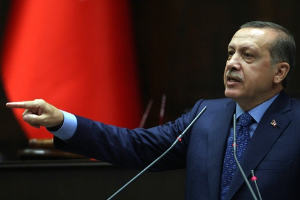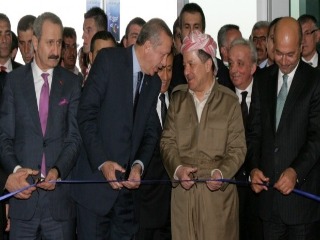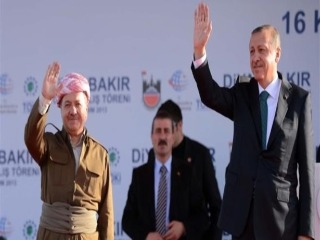PKK Provokes Rise of Turkish Nationalism
By Halil Magnus Karaveli (vol. 1, no. 15 of the Turkey Analyst)
Ethnic polarization between Turks and Kurds has intensified as the PKK continues its attacks on Turkish targets. Hatred against Kurds, not a regular feature in Turkey so far, is on the rise in Turkish society. Turkey’s Kurdish problem will become even more difficult to handle if an ethnic nationalism that excludes the Kurds develops further at a popular level. However, it is evident that old assumptions about the conflict will have to be revised.
Finding a Place: The PKK's Efforts to Remain Relevant
By Svante E. Cornell (vol. 1, no. 11 of the Turkey Analyst)
In early July, the PKK terrorist organization abducted three German climbers on Mt. Ararat, in an apparent revenge for Germany’s decision to ban the PKK’s mouthpiece, Denmark-based television channel Roj TV. The episode points to the PKK’s continuous difficulties in maintaining its claim to represent Kurdish opinion, faced with multiple challenges – from both the Turkish military and governing party, who otherwise agree on little; as well as the EU’s refusal to grant the PKK legitimacy and the Iraqi Kurdish parties’ success in making Iraqi Kurdistan the beacon of Kurdish hope, eclipsing the PKK. It remains to be seen whether the PKK will be successful in taking advantage of the current Turkish crisis.
Will Erdogan Always Prevail?
By Halil Karaveli (vol. 7, no. 10 of the Turkey Analyst)
The year after the Gezi Park protests has been the most difficult for Recep Tayyip Erdoğan since he became prime minister, but he has prevailed over his foes and challengers and he can confidently look forward to becoming Turkey’s first popularly elected president in the upcoming election in August. No one can challenge Erdoğan. However, that does not mean that Turkey is always going to bend to his will or that the country is going to be easy to govern even for an all-powerful President Erdoğan.

Good Kurd, Bad Kurd: The AKP’s Rapprochment with the KRG
By Gareth Jenkins (vo. 6, no. 22 of the Turkey Analyst)
On December 1, Turkish Energy Minister Taner Yıldız met with Iraqi Deputy Prime Minister for Energy Hussain al-Shristani in Baghdad in an attempt to assuage the central Iraqi government’s concerns about a string of energy cooperation agreements between Ankara and the Kurdistan Regional Government (KRG). On November 16, Turkish Prime Minister Tayyip Erdoğan had hosted KRG President Massoud Barzani in the city of Diyarbakır in an attempt to divide and weaken Turkey’s own Kurdish nationalist movement.

The New Oil Game in Mesopotamia
By Kemal Kaya (vo. 6, no. 21 of the Turkey Analyst)
Petro-politics fuels the evolving relationship between Ankara, Erbil and Baghdad. At the heart of the new oil game in Mesopotamia is the question of how the oil from the territory of the Kurdistan Regional Government (KRG) is going to be transported to the world markets. Turkey’s strategic position – and its economy – is set to be strengthened as it taps into the oil riches of Iraqi Kurdistan and as it realizes its ambition to be a major regional oil hub.




